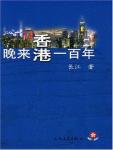Chapter 1 Xu Huiyan only needs to look forward to the moment
I am not unfamiliar with the name of Changjiang, and I have been deeply impressed by her reportage works as early as the mid-1980s.Later, Changjiang was actually "identified" on the screen of CCTV's "News Investigation"-it turned out that the popular TV host Changjiang is the reportage writer Changjiang.Changjiang's sharp interview style and vigorous thinking ability left a deep impression on me.Suddenly she seemed to disappear again.Before finding out the reason, I saw her new reportage work "Mine Disaster Like Hemp" in "Contemporary".Soon, I read this work by Changjiang again in the submission list for the third "Lu Xun Literature Award".It wasn't until I read a serial in "Contemporary" magazine recently that I knew that Changjiang was stationed in Hong Kong by CCTV, and I knew that she still insisted on writing "out of profession".
However, so far, he has never met with Changjiang, and he has not even passed the phone call.
A friend gave me the proof of Changjiang's collection and publication, and asked me to write the preface.This made me feel a little flattered.Of course, I respect the talent and courage of this writer, but when I think about it carefully, I know only a few traces of her creative path, how dare I take on this important task?However, after reading these fifty-odd essays by Changjiang, I was overwhelmed by the writer's broad vision, quick thinking, and lively and pungent writing style.
The beginning of Changjiang's collected work is "Being a reporter in Hong Kong".The opening chapter brought me into the field of cultural comparison with vivid details.The Mainland and Hong Kong have the same language and the same race. Because of the differences in political systems and development backgrounds, cultural differences are self-evident.What is rare is that Changjiang has captured this difference with his unique reporter's acuity.What is even more rare is that Changjiang used the profound introspection of a writer to understand the things behind this cultural difference.In other words, reading this article, I respect her love and passion for the journalist profession, and even more admire her sternness behind "love and passion".From this, I think I can almost arbitrarily claim to have found the key to interpreting the unique charm of this book-the reporter's acumen makes Hong Kong colorful and colorful, full of fun.The author's perception makes the dignified and deep thoughts stretch away, and the meaning is long.
The Hong Kong described by Changjiang is indeed very interesting.For example, the cleanliness of public toilets in Hong Kong and the availability of spare toilet paper are a matter of course. Probably no Hong Kong writer has been surprised by it.However, when it comes to Changjiang's pen, it is really a great article that enlightens people's minds.Another example is spitting into paper, rubbish into bins, sundries into the house, bus queuing, toilet queuing, swimming queuing, etc., all the way to the "Dangdang" sound at the intersection for the blind to cross the street, and the "Star" small wheel Seats that can be turned around, "Octopus cards" with one card in each hand... are all familiar things to Hong Kong people, but Changjiang described them with gusto.After reading this work, while listening to her talk about "Jing Er" with great interest, I also reflected that I have traveled to Hong Kong several times, why I don't have such a keen antennae, let alone such a talent for "talking about Rong Guofu".I think this should be due to her professional development as a reporter, as well as the "cultural shock" of "Grandma Liu" entering the "Grand View Garden", and more importantly, her open and tolerant cultural philosophy.The author's affection for the mainland and Hong Kong is sincere, so there is no need to make political considerations of weighing the pros and cons in the book, and there is no need to be polite and considerate.In this book, there is no denying the inadequacy and backwardness in some aspects of the mainland, but it is not blunt, full of understanding and expectations of the social process.For Hong Kong, it is not always a praise, sometimes even a little bit of ridicule.For example, the author writes that Hong Kong people can really "see the whole scene", which makes people laugh--the Hong Kong government's "Urban Oasis" project, what are the "social significance", "economic significance" and "environmental significance", Coupled with the poetic "Outside the Oasis", it lost the reporter's appetite. Looking at it beforehand, it is just a small piece of well-groomed lawn sandwiched between high-rise buildings.For the author from the vast mainland, she couldn't help but burst out laughing, and she couldn't help but utter a joke: "Oh, Hong Kong people can really make a scene!" However, the author's emotion after the ridicule was touching. The name "Oasis" is really the expectation of the densely populated Hong Kong people for green, and the "Green Warrior Volunteer Team" formed by the community residents who take care of this "urban oasis" is also particularly tragic.The author said, "Hong Kong people can really look at the scene." After this sentence, I gradually gave up the contempt at the beginning, and another thing swept up - admiration.It should be said that after reading this, I also "admired" this writer. I admired her frankness in ridicule, and also admired her frankness in giving up that ridicule.Her frankness and frankness contain cultural surprise and understanding, as well as cultural humility and kindness.This healthy cultural mentality belongs to the Yangtze River, and it also belongs to the Chinese people in the open era.
In this sense, this book is a book that explores life in Hong Kong and expands our horizons. It is also a book that sharpens our minds and makes us curious, happy, humble, and kind.
It is for sequence.

